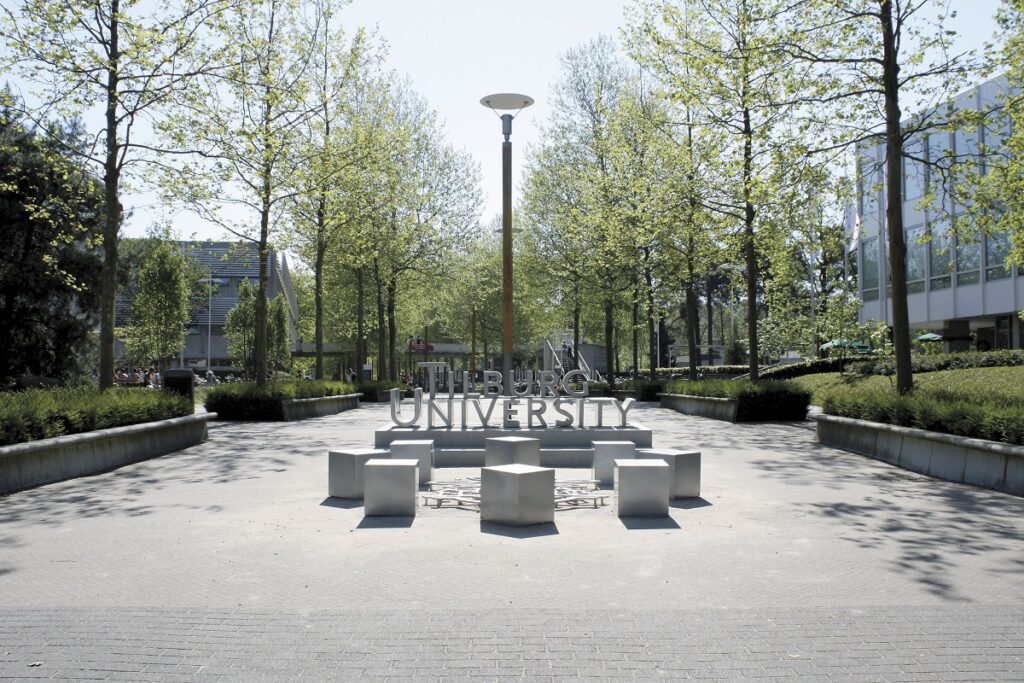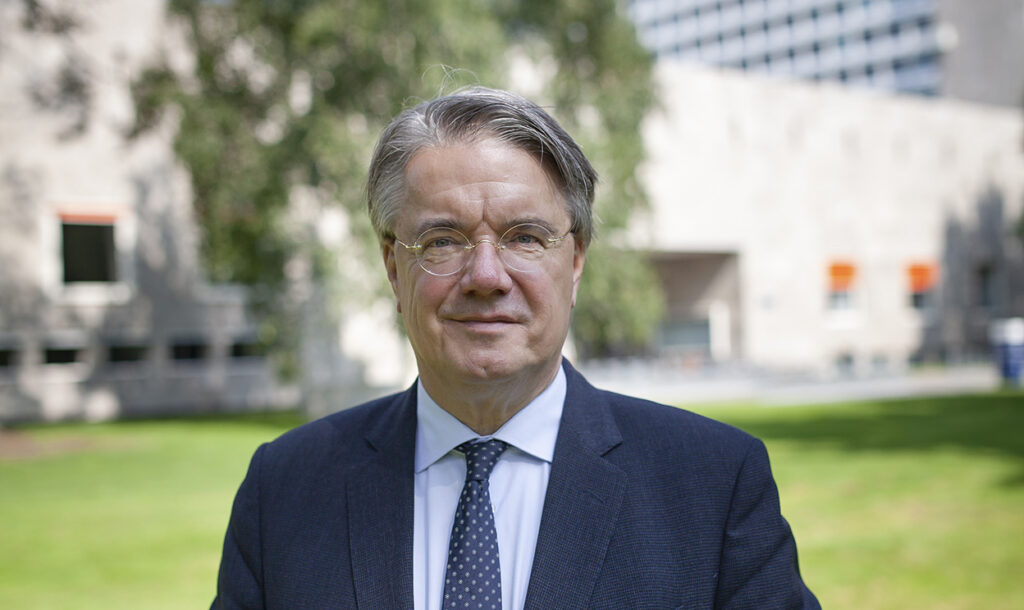Tilburg University braces for major budget cuts, but aims to remain resilient
The announced budget cuts to higher education are described by Tilburg University as ‘unprecedentedly large.’ While the university intends to oppose these cuts fiercely, it must also prepare for them. Deans and directors have already been asked to exercise restraint in filling vacancies and hiring external staff.

Today marks the start of the academic year at the university. This time with a somewhat somber tone, as Tilburg University faces a turbulent period ahead.
‘The overall picture is alarming,’ says Rector Magnificus Wim van de Donk in the rector’s office at the Cobbenhagen building. Wilma de Koning, Vice President of the Executive Board, puts it more bluntly: ‘It’s an insult to everyone who works here.’
If these plans go ahead, severe budget cuts will be necessary. Starting next year, reductions will gradually increase to a minimum of 30 million euros per year by 2029, which amounts to nearly ten percent of the total budget.
This is just a preliminary scenario; the final figures could differ. But it won’t be any rosier. ‘Unfortunately, 30 million euros per year is a minimum,’ warns De Koning.
New government
The cuts are a result of the new government’s coalition agreement, which includes significant reductions in the budget for higher education. In total, nearly one billion euros will be cut.
Almost 300 million euros will come from the Internationalization in Balance Act, aimed at reducing the number of international students. There may also be cuts to the Research and Science Fund, which finances incentive grants, and the sector plans, while the starting grants are under scrutiny. The extended study penalty will also cost universities money.

It’s not just universities that are unhappy with the cuts. Nationwide, 69 percent of voters think the cuts are a bad idea, according to research by Dynata. Even among voters of the governing parties (PVV, VVD, NSC, BBB), 62 percent oppose the plans.
Defiant
Much remains uncertain. More clarity about the exact scale and impact of the cuts will come gradually. On Prinsjesdag (Budget Day), the financial picture will become a bit clearer, followed by the budget debate in the House of Representatives in November. One thing is certain: it won’t be pleasant. Van de Donk states: ‘We’re not going to tell rosy stories; this is going to hurt.’
The previous government invested nearly a billion euros, but that money mainly served to compensate for the existing deficits. Now that a billion euros is being cut again, it sets the development of science back in time.
Nevertheless, the university wants to remain defiant. Van de Donk: ‘Tilburg University has a relatively good starting position; we have grown significantly in recent years. But we will continue to resist and, if necessary, challenge decisions legally through the umbrella organization Universities of the Netherlands. We also encourage staff to make their voices heard, such as at the alternative opening of the academic year in Utrecht.’
‘This affects everyone; we must get through this together’
De Koning believes it is important for university staff to be able to maintain their trust. ‘This unreliable fluctuation by the government translates directly to our employees. Therefore, it is important that we, as a university, remain reliable. Whatever happens, we want to be there for our people. And they are absolutely welcome to contribute their ideas.’
The Executive Board emphasizes that it sees all employees, from scientists and lecturers to support staff, as one team. De Koning : ‘This affects everyone; we must get through this together. Employees who are not scientists are still an integral part of science. Without them, it would not be possible to be a good university.’
Future
So, a cautious look at the future. How will the cuts translate? As a first measure, Tilburg University is calling for restraint in filling vacancies and hiring external staff. Starting and incentive grants are being put on hold. What follows? And can forced layoffs be avoided?

It’s too early to say anything about the latter. De Koning points out that there is always natural turnover among staff, partly due to aging and staff mobility. ‘So, don’t panic.’
What is the university already looking at? Van de Donk: ‘If we’re honest with ourselves, Tilburg University does not excel at securing grants and funding from the second and third funding streams. We could certainly improve there.’
The university also has a lot of external hires, which Van de Donk describes as ‘a lever you can certainly pull.’ The distribution of funds within the university could be more efficient, as could the way of working. ‘Of course, there are positive aspects to our culture of consultation, but it sometimes consumes a disproportionately large amount of time,’ says the Rector Magnificus with a smile.
Another focus area is the campus plans, particularly the occupancy rate. ‘It is very low,’ De Koning notes. After COVID-19, many workplaces at the university are unoccupied.
Renewal
Still, the conversation shouldn’t just be about what’s no longer possible, De Koning believes. ‘That’s why we want to continue investing in innovation.’
Because renewal drives universities, Van de Donk agrees, pointing out that they are co-shapers of the future. Even in dark times, there must be room to dream.






